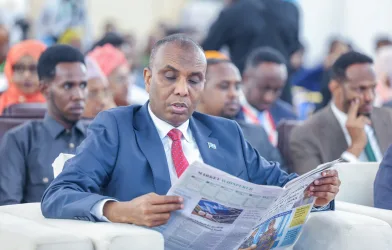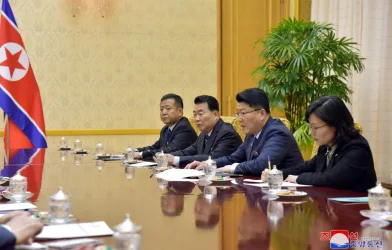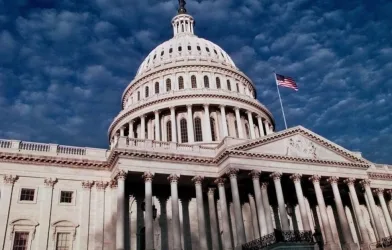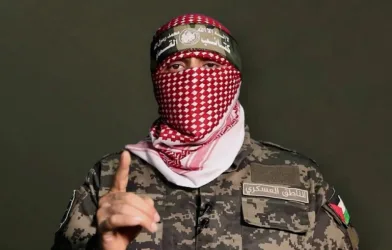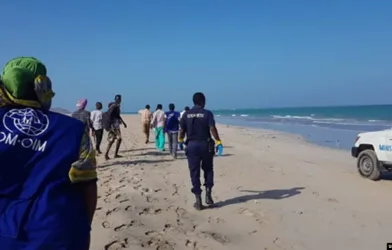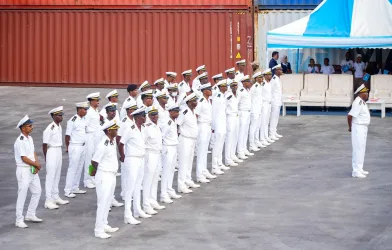
President Mohamed Abdullahi Farmaajo came to Villa Somalia with one disadvantage among others: 1- he is not a member of an organised religious group. He campaigned on a reform agenda of which putting in place anti-corruption measures is the most salient. As President Farmaajo knows well rhetoric is not the most potent weapon against corruption. The first test of his resolve to fight corruption lies in his view of the so-called Somali National Army (SNA). The international community looks upon the SNA as a bunch of clan militias partly responsible for the security turmoil in such regions as Lower Shabelle. Last year the international community decided to fund local regional forces, who are believed to be better at keeping Al-shabaab at bay than SNA is. Ahlu-sunna Wal Jama’a paratroops have a better record of fighting Al-shabaab too. If Farmaajo adopts a policy to micromanage the process to reconstruct the Somali Army, he will have shown lack of understanding for politicians’ role in building a reliable and inclusive national army. What challenges will the government encounter to consider implementing recommendations on a “Somali National Security Architecture”? One of the challenges is reluctance to address different security situations obtaining in regions. While regions share the common problem of security forces dominated by soldiers from the local social group, security forces are a party to recurrent inter-clan conflicts in some regions. Will the new government and leaders of the federal states reactivate the army integration committee or will they form a new one with a new mandate?
Unlike his predecessor, President Hassan Sheikh Mohamud, who came to the office on a wave of popular and international enthusiasm to help Somalia to move forward, President Farmaajohas inherited a legacy of a corrupt government. All conferences held to help Somalia to take a quick path of recovery have not produced satisfactory results. To blame the international community for those failures will mean to deny Somalis the agency to solve their problems.President Farmaajo must resist the temptation to blame Somalia’s international partners for the failures of the Somali political class.
Somalis worry less about President Farmaajo’s clansmen taking over the “state” in Villa Somalia; many people worry about the possibility of Villa Somalia becoming a political tool exploited by his close friends. Cronyism is the real threat, they say. The anti-corruption policy lauded in a commentary in the Somali National News Agency (SONNA) website about the edict to declare ministerial assets is commendable so is the initiative to ask the public for ideas to improve governance. This reminds one of the Public Relations Office instituted by the military regime after 1969 coup although military leaders did not ask people to send their ideas through a personal email similar to the one created for President Farmaajo’s election campaign ( talowadaag@farmaajo2016.com ).
For London Conference to bear fruit for Somalia and its international partners President Farmaajo ought to remind Somalis the onus to make better use of the development aid is on Somali politicians who should know the intricacy of national politics but tend to ignore trust-building and transparency.
The four themes of London Somalia Conference reflect a commitment to sustaining “the progress …[ Somalia ] has made over the last 5 years”. To achieve benchmarks to be agreed at the conference, Somali leaders need to discuss the relevance and the practicability of the National Development Plan endorsed by the leaders of the federal states in their meeting in Mogadishu last week. Are Somalis ready for a planned economy abandoned by the military regime in 1986? The military regime did not draw up a national development plan after 1982. It adopted an economic liberalisation policy followed by IMF-guided Structural Adjustment Program. Research by professor Ahmed Samatar had shown that national development plans formulated by the military regime failed. In addition, Puntland has its own development plan; SomalilandGovernment is preparing one after the 2014-2016 National Development Plan came to an end last year. Federalism cannot go hand in hand with a centrally planned economy particularly in a country where national development plans meant food shortages and neglect of regions on the periphery. If national development plans failed in a functioning Somalia could they succeed in a fragile Somalia?
The other burning issue for the government is the 2020 elections plan. The 2020 agenda was prepared in the hope of the presidential election taking place on time last year. If leaders stick to the 2020 election plan President Farmaajo’s mandate will last less than four years. If the plan is amended, elections will take place in 2021.
London Somalia Conference is a major opportunity to show the international community that Somali leaders have learnt from past mistakes and that they are ready to take responsibility for their mistakes.
Liban Ahmad
libahm@icloud.com
President Mohamed Abdullahi and the London Somalia Conference
Published: April 21, 2017


